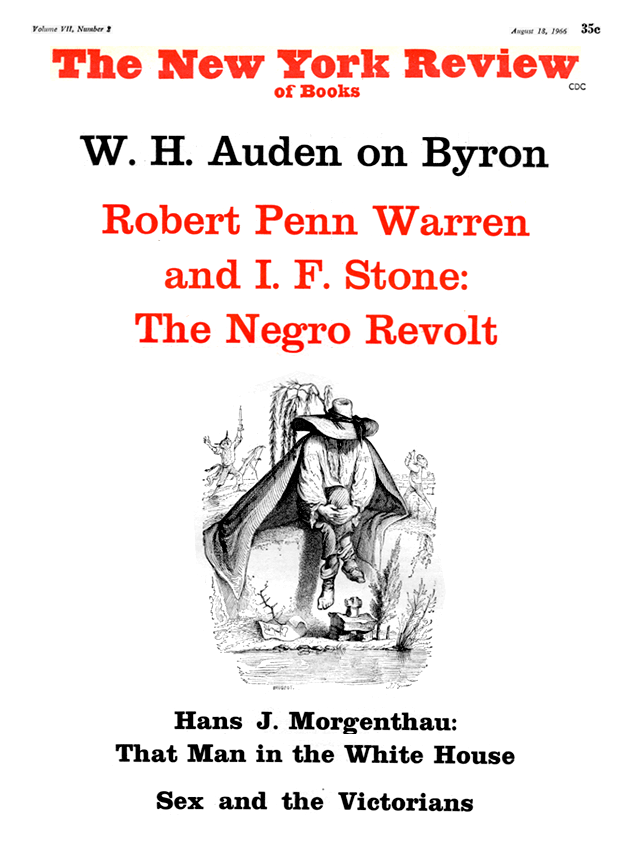In response to:
Large Questions from the July 7, 1966 issue
To the Editors:
Under the heading Large Questions Mr. Anthony Quinton (July 7) summarizes some points from my book, The Identity of Man, in which I distinguish the values implied in the practice of science from those not implied in it, and the content of scientific knowledge from that of self-knowledge. These are “modest and hardly exceptionable theses,” says Mr. Quinton. But this is simply not so. On the contrary, these are the issues which now trouble and divide all those who concern themselves with scientific method and philosophy. They are equally in dispute among those scholars who approach the analysis of reality by way of language and literature. And I believe that in the next decades, they will more and more occupy traditional philosophers too.
I hope that philosophers will then read about these matters more closely than Mr. Quinton has done on this occasion, for he asks some questions which the book surely answers. They concern my “more striking suggestions,” namely the distinction between identity and likeness in human (and indeed animal) response, and between instruction and information in the mechanical analysis of brain processes. These distinctions are central to The Identity of Man, and (in my view) to any biologically grounded discussion of the mind, since on them hinges whatever distinction can be drawn between reflex and thought. I am sorry to have it implied that I treat these fundamental questions too summarily simply because I take pains to treat them concisely.
J. Bronowski
The Salk Institute for Biological Studies
La Jolla
Anthony Quinton replies:
Mr. Gilden took me up sharply in the issue of July 28th for ascribing the question “how can we set out to discover new knowledge unless we know what we want to know already” to Plato. He says (1) “that the question is raised not by Plato, nor by his Socrates, but by Meno” and (2) “that Plato’s Socrates regards the question as an eristic trick and thinks very little of it. (1) If an argument or question can be ascribed to Plato only if he raises it in a dialogue in propria persona then none can be ascribed to him at all since in none of his dialogues is he one of the dramatis personae. A leading function of the characters other than Socrates is to pose questions for him to answer. (2) Socrates does indeed express contempt for Meno’s question about new knowledge. But the fact that he develops the theory of anamnesis, a central Platonic doctrine, in answer to it suggests that this contempt is a debater’s ploy. Furthermore the question crops up in the Euthyphro as well as in the Meno, which suggests that Plato was at least somewhat bothered by it.
It was perhaps somewhat ungrateful of me to describe Dr. Bronowski’s emphasis on the imaginative, and not merely mechanical, character of scientific discovery as “modest and hardly exceptionable” since he himself in Science and Human Values has contributed to the widespread acceptance of the idea, expounded most powerfully and fruitfully by Sir Karl Popper. I should have said, on this topic, that he was covering ground familiar from his own earlier writings and those of others. But I am unrepentant about the other matters which he claims “trouble and divide all those who concern themselves with scientific method and philosophy.” Does anyone seriously suppose that all morally valuable human qualities are exemplified in scientific work or that the service literature does in enlightening us about ourselves could be wholly discharged by science? Dr. Bronowski’s second paragraph exhibits in a pronounced form the qualities which made me critical of his “more striking suggestions”: matters of large importance are hazily intimated, references are made to very up-to-date developments in science but the two are not brought into any definitely intelligible relation. It was not the summariness of Dr. Bronowski’s exposition I was objecting to but its persistent creation of an appearance of logical connection between its parts, without, as far as I can tell, the reality.
This Issue
August 18, 1966


